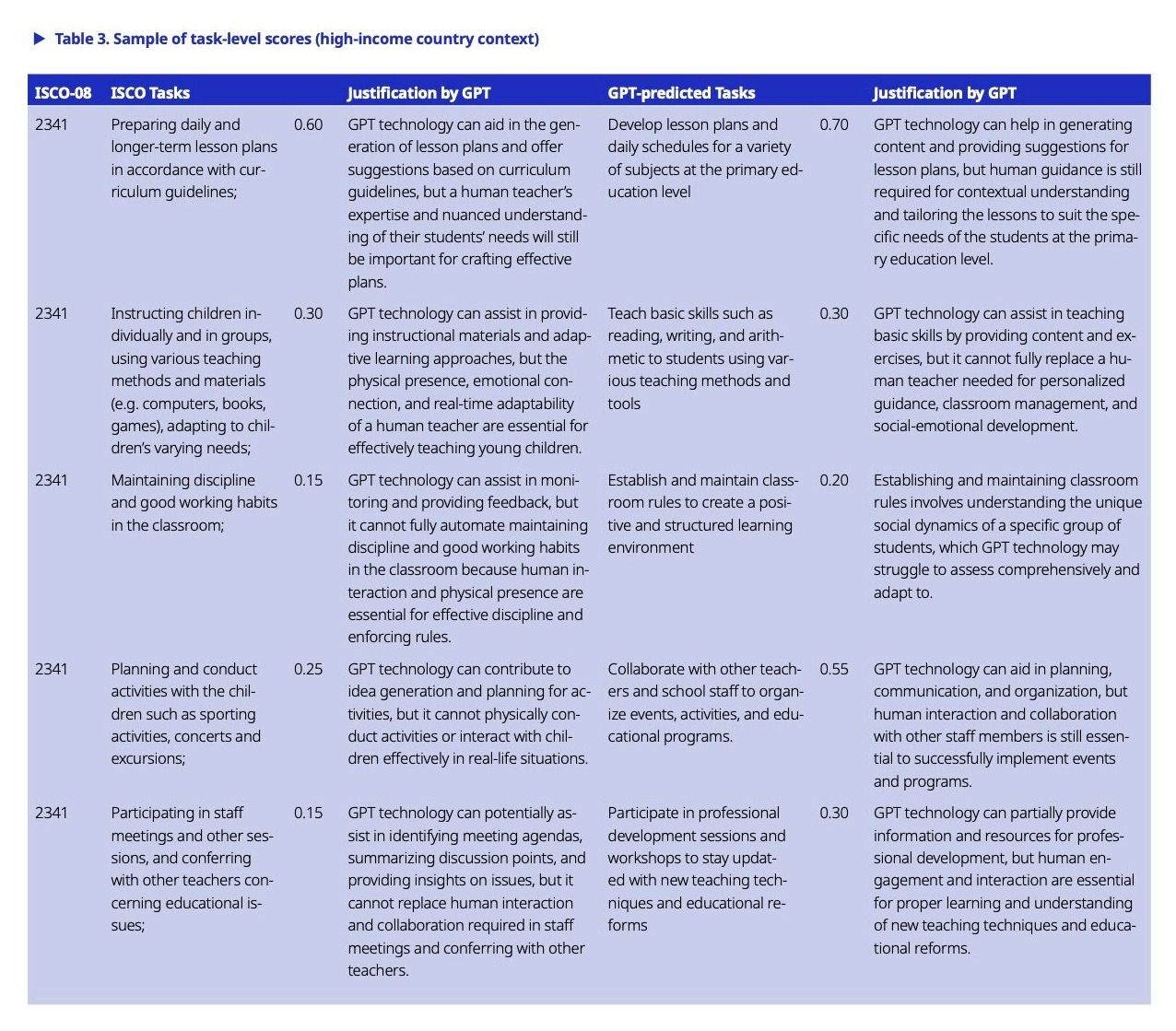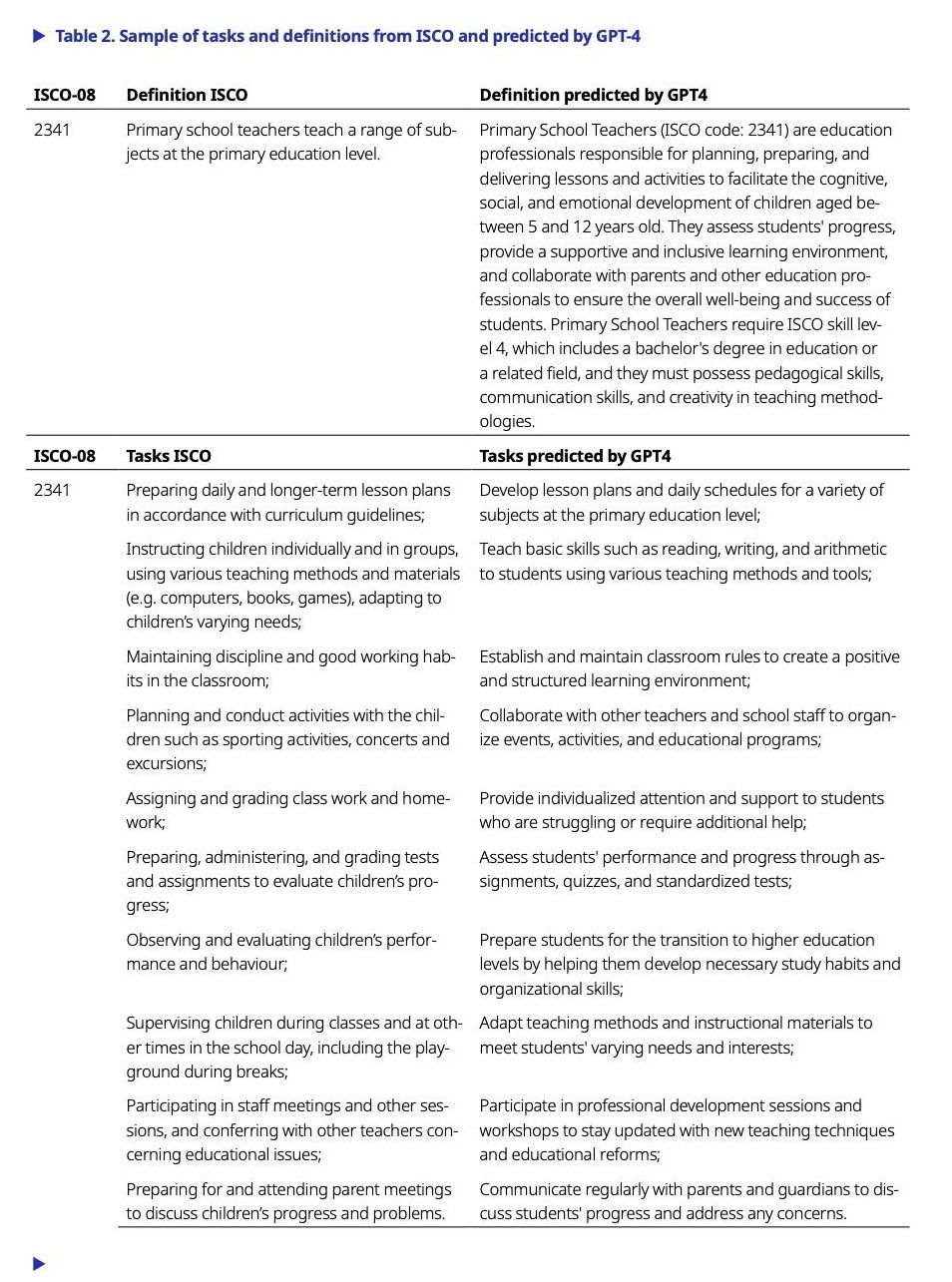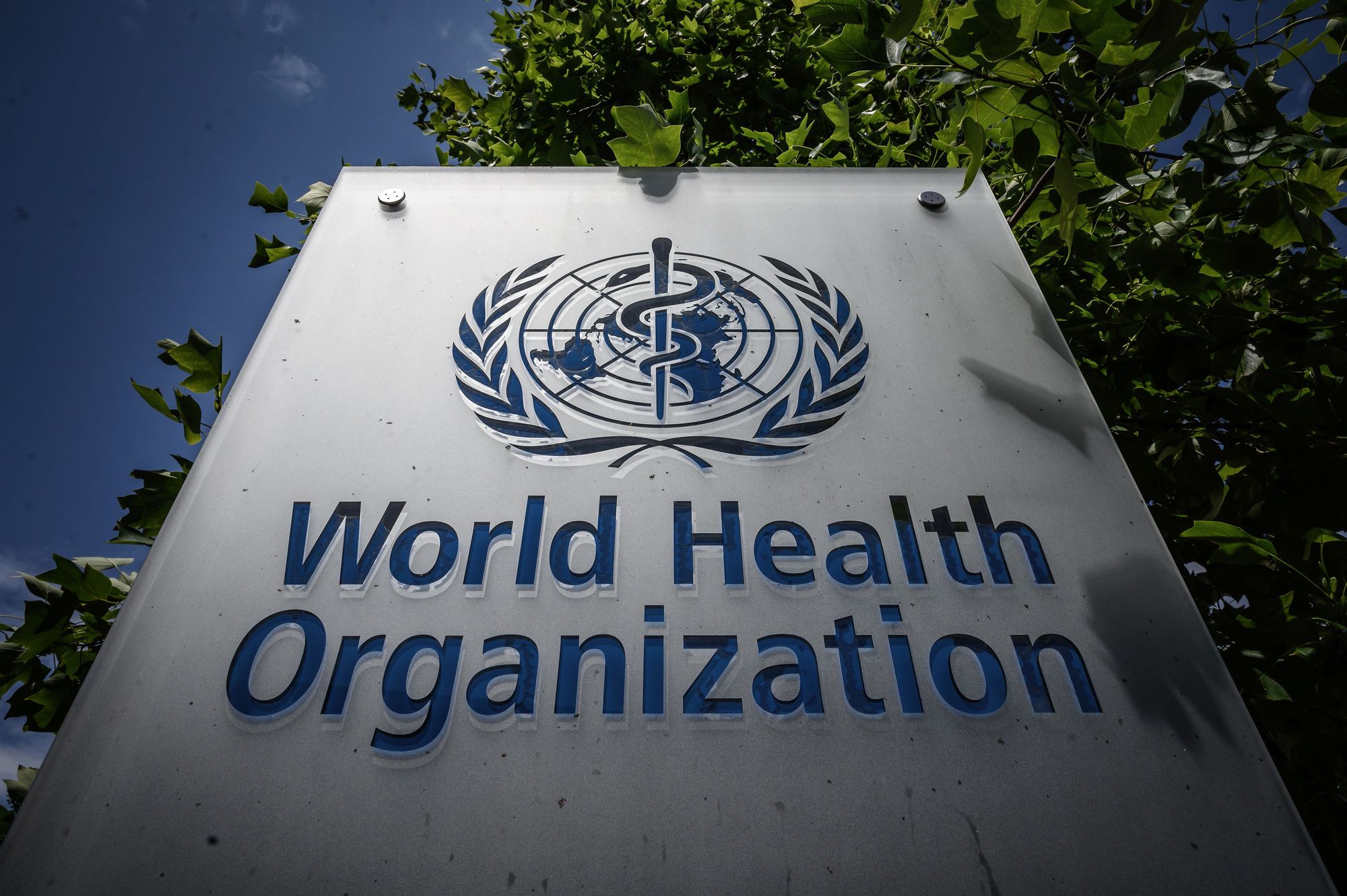#151 The G|O Briefing, September 22, 2023
Is generative AI coming for our jobs? Yes and No ILO says | The worrisome rise of transnational repression
All eyes are currently on the United Nations General Assembly. From there we learned from Antonio Guterres that he believes the world has become “unhinged,” that global governance and multilateralism are “stuck in time.” The UN chief went on to tell CNN’s Christiane Amanpour that he had “no power and no money, just a voice.”
Neither Xi Jinping—who, when addressing the same gathering in the past, repeatedly stressed his country’s commitment to multilateralism—nor Emmanuel Macron, nor Rishi Sunak bothered to attend, an alarming omen for the organization, and another unwelcome piece of evidence, if one was needed, that the whole architecture of the system built since the end of WWII is collapsing before our eyes. In its apparent quaintness, International Geneva is watching the spectacle with a mixture of apprehension and excitement. “This is a fascinating moment,” a seasoned Western diplomat muses as we part after a lengthy exchange. One can't help but think that, besides the intellectual challenge of figuring out the future, he also wonders what the effects of the collapse might eventually have on the city.
But Geneva, not New York, is our backyard, and remains our principal focus. And so today in The G|O, we share a piece of good news: reports of AI leading to massive job destruction may be exaggerated. That’s coming from a recent International Labour Organisation (ILO) working paper: “Generative AI is likely to augment rather than destroy jobs,” its authors say. A conclusion they reached after devising a methodology that leveraged the ILO’s extensive datasets and provided them with a high-resolution scan of the world of work.
Our second story sheds light on a growing and worrisome trend, the rise of transnational repression. What is transnational repression? It is, NGO Freedom House says, “governments reaching across borders to silence dissent among diasporas and exiles, including through assassinations, illegal deportations, abductions, digital threats, Interpol abuse, and family intimidation.” It happens in Geneva, too, reports the Unrepresented Nations and Peoples Organization (UNPO), which has extensively researched the phenomenon in Europe.
Will generative AI destroy jobs? An ILO working paper offers hope that it won’t
The great fear of massive job destruction due to the rise and spread of generative AI might be exaggerated, a recent International Labour Organization (ILO) working paper suggests. With the explicit aim of contributing to a much-needed debate to design “appropriate policy responses” to the incorporation of generative AI tools in the workplace, its authors say their extensive research shows that, while not denying that significant disruption will occur in the workplace, with clerical work the most affected, “the greatest impact of this technology is likely to not be job destruction but rather the potential changes to the quality of jobs, notably work intensity and autonomy,” the ILO writes.
Last November’s release to the public of the generative AI platform GPT-4 from OpenAI, with record-setting adoption levels, prompted immediate and legitimate fears of massive job destruction. A widely-quoted analysis by Goldman Sachs estimated that AI could automate the equivalent of 300 million full-time jobs globally, while the Paris-based Organisation for Economic Cooperation and Development (OECD) declared that rich economies were on the cusp of an AI “revolution.”
The ILO working paper, however, paints a highly complex and nuanced picture in its assessment of the technology’s impact on work. The study stresses that the potential effects of generative AI will differ widely between regions, countries, professions, and genders. Clerical work, they found, was the category most likely to be profoundly affected, with close to a quarter of a clerical job’s tasks “highly exposed” and more than half of them at a “medium” level of exposure. The working paper also warns that women were more likely to be negatively impacted than men due to their over-representation in such jobs. Overall, given the high level of clerical work in rich economies, the study estimates that about 5.5% of employment will be potentially affected by AI—a figure that drops to 0.4% in low-income countries.
The divide between high- and low-income countries, however, does not apply when considering the potential for work augmentation, with more than one out of every five jobs being potentially exposed to augmentation effects. The study also notes that whether augmentation would be positive or negative for workers depends on how the technology is integrated into work processes.
The study’s findings were based on extensive use of the ILO’s datasets and of the International Standard Classification of Occupations (ISCO-08), which categorizes the “set of tasks and duties performed” into 436 individual “unit groups” or specific occupations. Through an application programming interface (API), the ILO researchers matched them against the tasks GPT-4 is currently able to perform, thus measuring the potential level of exposure to the technology and the risks associated with its introduction in the workplace.


“The added value of our study is in the use of the ISCO Standards and other ILO micro-data sets. It allowed us to analyze jobs with a fine grain and globally map, country by country, how many people are in any given job, and how they could be affected,” Janine Berg, one of the study’s three co-authors, told me. “What emerges from this picture is that when talking about job destruction, low-income countries (LIC) are, to a certain extent, protected, because introducing these technologies is expensive. On the other hand, LICs might also end up on the wrong side of the digital divide once again, with productivity gaps widened, if they can’t benefit from generative AI due to infrastructure bottlenecks and high costs.”
More broadly, Berg says, if there is one takeaway from the study, it’s that “no, AI is not the end of work. Work will be transformed, which could be good or bad, but that will eventually depend on how the technology is introduced in the workplace, in rich and poor countries alike. That’s a transition that should be managed—and I hope studies like ours will encourage policymakers not to sit back but to manage the process and minimize the negative externalities associated with generative AI.”
Countries, the authors write, should develop policies that will lead to an “orderly, fair and consultative” process in managing the expected shift. “Outcomes of the technological transition are not predetermined; it is humans that are behind the decision to incorporate such technologies, and it is humans that need to guide the transition process,” they stress.
-PHM
The worrisome rise of transnational repression—Geneva and other UN host cities are concerned
New Delhi has rejected them as “absurd,” but if eventually proven right, the allegations made before Parliament last week by Canadian Prime Minister Justin Trudeau that India might be behind the killing in British Columbia of Hardeep Singh Nijjar, a prominent Canadian Sikh leader, would be another example of ‘transnational repression’—in other words, governments reaching outside their borders to brutally silence their critics among diasporas and exiles. In this case, the accusations by Trudeau—who cited “credible evidence”—are all the more startling and unusual because they pit two democratic countries against each other.
The gruesome assassination by Saudi Arabia of journalist Jamal Khashoggi, dismembered inside the country’s consulate in Istanbul in October of 2018, is one of the most sordid examples of an authoritarian country silencing its critics outside its borders. But if Khashoggi’s elimination attracted global attention, his case was not unique. Recent reports reveal a rise in such forms of repression—a worrisome trend that, in the margins of the ongoing session of the Human Rights Council, has democratic states, elected officials, and human rights defenders and activists increasingly concerned.
A June 2023 update report by the political advocacy nonprofit Freedom House lists “assassinations, unlawful deportations, detentions, renditions, physical threats and coercion by proxy,” as techniques used by authoritarian regimes to silence their critics. The NGO says that its database now includes information on 854 direct, physical incidents of transnational repression committed by 38 governments in 92 countries around the world since 2014. “It is a daily assault on civilians everywhere—including in democracies like the US, UK, Canada, Germany, Australia, and South Africa,” Freedom House writes. The organization says that ten countries account for 80% of cases of physical repression it has compiled since 2014: China (253), Turkey (132), Tajikistan (64), Russia (46), Egypt (45), Turkmenistan (36) Belarus (30) Iran (23)and Rwanda (18).
The recent increase, it analyzes, is the direct consequence of Russia’s full-scale invasion of Ukraine. Freedom House notes that the war “has intensified patterns of transnational repression in Ukraine, Russia, Central Asia, and Europe. “Moscow’s invasion also led to worsening repression inside Russia, spurring a mass exodus. […] While many [Russians] were able to relocate safely, some were targeted abroad by Moscow.” China, the update states, is the “world’s leading perpetrator of transnational repression” and “an origin country for 30 percent of all recorded incidents of physical transnational repression.”
International Geneva and other UN host cities also at risk
In April 2021, the Unrepresented Nations and Peoples Organization (UNPO), an international membership-based organization established to empower the voices of unrepresented and marginalized peoples worldwide, published a report with a focus on Europe highlighting the extent and wide scope of transnational repression. The report warned of “an increase in reprisals and a concurrent failure by European states, including those hosting the UN and other international and regional bodies, […] to recognize the scope and severity of the issue.”
A follow-up briefing paper in March 2022 describes similar operations conducted in EU Member States and in Switzerland, under the term “refugee espionage”: “The purpose of foreign states pursuing ‘refugee espionage’ abroad [is] generally to undermine, neutralize or eliminate political opposition, thus ensuring regime stability and a monopoly on power. […] Methods commonly used include: harassment; threats and intimidation; physical attacks; cyber-attacks; abductions; or even assassinations. Actors involved commonly include: diplomats and other embassy officials; criminal networks and own state organizations or institutions; and own citizens as informants, sometimes via coercion,” the report says. UNPO’s findings closely resemble the Freedom House reports. They reveal that “Russia, Iran and China are the three most commonly cited perpetrators of refugee espionage by national security authorities in Europe.”
“Of all the UN’s cities, Geneva is particularly concerned, given the presence of the Human Rights Council,” Mercè Monje-Cano, UNPO’s Secretary General, told The G|O. “This is where some of the most vulnerable and defenseless people come, often victims of egregious abuses. In light of this growing threat, there is a pressing need for better coordination and increased vigilance among nations and international bodies. Geneva, being the human rights capital of the world, must take a lead in safeguarding the rights and safety of those who come here.” Political or refugee espionage is a criminal offense in Switzerland, UNPO notes in its country survey.
UNPO’s findings are confirmed by Switzerland’s latest Situation Report of its intelligence services: “The Russian, Chinese and Iranian intelligence services, together with a number of others, are known to engage not only in espionage but also in a wide range of other activities. These include harassment and intimidation of opposition activists or embassy officials, political interference, the procurement of critical goods, some of which are subject to sanctions, abductions, attacks and acts of sabotage. The activities of the Chinese and Iranian services in Europe are targeted mainly at the respective diaspora communities. Surveillance of their communities is likely more important to both these countries than it is to Russia.” In Switzerland and elsewhere, the Assessment states, Chinese surveillance is carried out “not only through official channels but also through the active participation of many Chinese political, economic and cultural associations and organizations.”
But, as we reported at the time, as late as 2020, an “arrangement” was still in place between Bern and Beijing which allowed Chinese immigration officers to operate in Switzerland, officially to monitor Chinese citizens who might have overstayed their stay in the country. Its revelation by the press prompted an uproar among human rights defenders globally. The arrangement was terminated in 2020, the State Service for Migration (SEM) told The G|O by email.

“The increase in transnational repression in the world is extremely worrisome,” Nicolas Walder, a Swiss Parliamentarian from the Green party, told us. Walder, a member of the Foreign Affairs Committee and of the Interparliamentary Association on China (IPAC), who opposed the extension of the Swiss-Chinese agreement, believes it is “time for democratic countries, including Switzerland to push back” against transnational repression. “These practices now go beyond what used to be industrial or scientific espionage,” Walder tells The Geneva Observer, representing “bellicose acts which target our democracies, our freedoms and the international order and its values.”
Among its recommendations, UNPO encourages the EU to study the phenomenon further in cooperation with national authorities in EU countries. It also calls on the UN, through its work on intimidation and reprisals, to initiate a study of the host countries’ efforts to protect non-state actors.
For its part, Freedom House recommends measures including the establishment of an official definition of transnational repression and encourages civil society organizations to keep documenting incidents, analyze perpetrator states’ tactics, and identify gaps in policy response.
“Raising awareness about transnational repression is key,” a senior Western diplomat says.
-PHM
QUICK TAKES
A follow-up on a story we published in June: Our colleagues at Health Policy Watch report that a UN High-Level Meeting has approved a “historic” Non-Binding Declaration on Pandemic Preparedness and Response. Historic? Possibly, but some global health watchers, however, call the adopted text anodyne.


And lastly, going back to the opening of today's Briefing, you might be interested in reading “How Not to Defend Liberalism,” an essay that argues that structural changes, not fine-tuning exercises, are urgently needed. Antonio Guterres would probably agree.
As always, thanks for reading. All the best!
Today's Briefing: Philippe Mottaz
Editorial assistance: David Jenny
Edited by: Dan Wheeler


